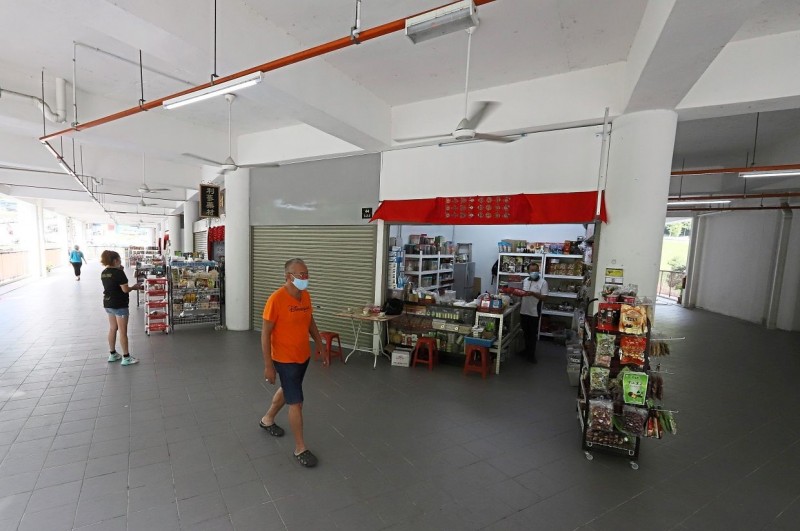
Image credit: The Star
KOTA KINABALU: Malaysia had been slow to take advantage of the United States-China rivalry when previous US President Donald Trump imposed tariffs on Chinese goods, leading some industries to move out of China to Asean and other countries.
“We were involved in electioneering matters then,” said Tan Sri Andrew Sheng (pic), who gave a virtual special address from his Penang base at the Sabah International Business and Economic Summit (SIBES) 2022 on Jan 18 entitled: “Managing geo-economic tensions between superpowers: Where can Malaysia go from here?”
“How to compete with giants without their scale, speed and scope?” asked Sheng.
He stressed on focusing on niche areas where giants like the US and China don’t have comparative advantage, with “Sang Kancil nimbleness amid the clash of elephants” and decried “Collective Action Traps”, that are slow to respond to crises in finance, political and existential crises like climate change.
“The issue of the US-China rivalry is that it is now the contest of the century. A lot of this depends on the dominance of the American dollar.
“Sabah is truly East Asia centric as flying to the future Indonesian capital of Nusantara is only 808km, which is closer than Kuala Lumpur.”
“The US-China rivalry presents opportunities as well as threats, and the result depends on our strategic response.
“Vietnam, the Philippines and Indonesia are upgrading fast and have large markets of more than 100 million and are endowed with cheap labour.
“By 2030, Asean would be the fourth largest PPP of $14.7 trillion, after China ($47.4 trillion) USA ($24.3 trillion), India ($19.4 trillion) and Japan ($5.9 trillion).”
“Technology and money are available to solve issues, but cannot get global agreement. Barrier to change is mindset change.
“Sabah has a great future, has great potential. How do we achieve that in the larger context of geopolitical issues?
“In 2010, Malaysia was No. 3 in Asean. Now it is No. 6 in Asean,” Sheng noted.
He is the Chairman of George Town Institute of Open and Advanced Studies, Wawasan Open University and former Chairman of the World Bank Group for Financial Sector Development; as well as former Chairman of the Hong Kong Securities and Futures Commission.
Because of his experience, SIBES 2022 co-organiser Tan Sri Majid Khan, openly at the event, asked Sheng to return to Sabah to help the State progress, to right what was wrong, as both Majid and Sheng recalled that when they left Sabah and ventured aboard, Sabah was the second richest State in the Federation, now being one of the poorest in Malaysia.
However, Sheng demurred, with apologies for not being physically present at SIBES 2022. He said that Penang manufactures 40 per cent of Malaysia’s exports.
“Sabah is rich in natural capital. It is time to invest in human capital. It is time to change our mindset. We have the ability to grow Sabah, to grow Malaysia, to become leaders of the world.
“Sabah’s population of 3.9 million people is the second largest in largest contributing 6th in GDP to the national economy.
“Basically, the issue is that Malaysia stands in a beautiful location.” However, Sheng said that what was lacking is unity.
“Asean is the heart of global geopolitics. Sabah’s situation is somewhat similar to that of Malaysia. Within this big global picture is something which I want to address today.
“If Asean is a single country, it will be the fourth largest economy in the world worth $6.7 trillion.
“Malaysia and Sabah are situated in the fastest growing region in the world. If Sabah is to be a regional powerhouse, we must think and act fast in the right direction,” he said.
On Malaysia’s relative position within Asean, Sheng said, “Our relative voice in Asean depends on our GDP size and power.
“However, since the 1980s, Malaysia moved from No. 3 in GDP size to No. 6 within Asean, overtaken by Philippines and Vietnam.”
In the 12th Malaysia Plan, Sheng sees three themes in resetting the economy, strengthening security, well-being and inclusivity and advancing sustainability.
“I totally support all these ideas. Why are we sliding back compared to other countries?”
Sheng lists four policy enablers as developing future talent, accelerating technology adoption and innovation, enhancing connectivity and transport infrastructure; and strengthening public services.
He recommends catalysing strategic and high impact industries; transforming micro, small, medium enterprises; revitalising health-care system; eradicating hardcore poverty; multiplying growth in Sabah and Sarawak; embracing digital connectivity for inclusive development; aligning research and development to commercialisation; transforming logistics; and whole-of-government and whole-of-society synergy focus approach to solving all problems.
“Do we have the capacity to execute all these effectively?”
Sheng said that social technology is Malaysians’ forte in adaptability with expose to multiculturism is poised to help them to win over customers in the 1.8 billion Muslim market, 1.3 billion Chinese market, 1.3 billion Indian market, and other markets elsewhere.
Our citizens’ adaptability with multicultural backgrounds, thus, having high cultural sensitivity with trust and multi-language skills will put Malaysians in a good state, besides that Malaysians’ true strengths are in social technology.
“We have less than a decade to deal seriously with climate change. According to the World Bank, nature now is integrated into development,” Sheng revealed as he called on the Minister of Agriculture and Fisheries, Datuk Seri Jeffrey Kitingan, to promote Sabah’s tarap fruits to the world.
According to him, a sustainable green society and living needs simple grass-root help. Businesses must innovate green ESG products and services. Goals must be simple and deliverable. Execution requires feedback loops at all levels.
“Vision without execution is delusion. Please do not delude yourselves,” Sheng said.
Source: https://www.dailyexpress.com.my/news/185989/malaysia-slow-to-seize-the-opportunity-sheng-/

